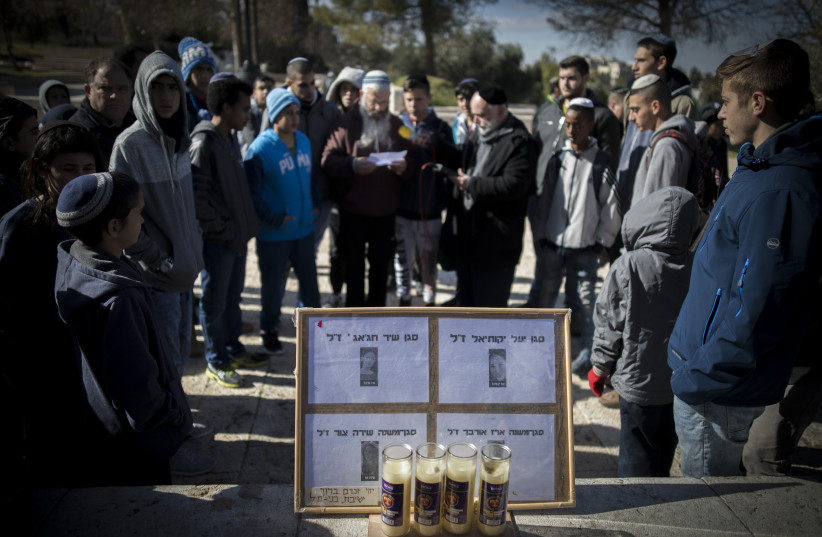Interior Minister Ayelet Shaked issued an order Tuesday that is probably the first volley in her goal to revoke the residency status of the family members of the terrorist who killed four soldiers in a ramming attack in Armon Hanatziv in 2017.
Shaked said she was issuing the revocation following a decision earlier in the day by the Special Appeals Court, which handles noncitizen’s rights, including sometimes Palestinians and sometimes African migrants, adding that she had this authority.
Although Shaked said the relatives’ temporary residency status was revoked effective immediately, it was expected that the family would appeal to higher courts, which might include a District Court or even the High Court of Justice
“This is an important and significant step in the stubborn war I am waging against terrorists and their families and a significant deterrent,” Shaked said.
In the 2017 attack, four soldiers were killed and 17 wounded when a flatbed truck driven by east Jerusalemite Fadi al-Qanbar rammed into a group of soldiers adjacent to the Armon Hanatziv promenade in southeastern Jerusalem.

Three female soldiers – Lt. Yael Yekutiel, 20, of Givatayim; Lt. Shir Hajaj, 22, of Ma’aleh Adumim; and Sec.-Lt. Shira Tzur, 20, of Haifa – and one male soldier, Sec.-Lt. Erez Orbach, 20, of Alon Shvut, died at the scene.
Attempts to revoke residency date back to 2018
The proceedings date back to 2018. In a hearing in 2018, the lawyers for the Population, Immigration and Border Authority (PIBA) said the interior minister at the time, Arye Deri, had the authority to cancel residency permits issued for West Bank Palestinians by the Civil Administration.
In particular, they said the minister could cancel family reunification processes that were incomplete and which were the basis of the residency status in dispute.
The three Palestinians are second-degree relatives of Qanbar, whose family reunification processes have not been completed.
PIBA said emergency rules gave the interior minister the right to cancel residency statuses in such cases, both for clear and concrete security reasons and for other related reasons, according to his discretion.
Hamoked lawyer Dani Shenhar disputed PIBA’s position, saying the state has never tried to cancel residency in such circumstances and has no authority to do so.
At most, there is a legal basis to cancel residency of persons who are both linked to an attacker and where there is also concrete information that they themselves present some kind of a security risk, he said.
Shenhar said it was undisputed that none of the three Palestinians in question posed any security risk.
